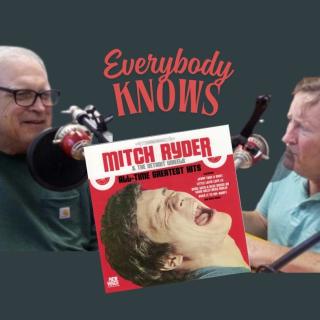James Brown has been on my mind lately, not sure why.
Wasn't the first time and definitely won't be the last he just pops in and we stare at each other.
My first JB experience was like seeing a being from another planet. And it all started when I....
Got mesmerized by his shoes so shiny they could be seen from outer space as he danced on TV's Shindig in September of 1965, singing Papa's Got A Brand New Bag.
I was ten. And transfixed. His dance moves – mainly from the ankle down – were...incredible. Never had I ever seen any man move like that – certainly not Fred Astaire. I still marvel at his grace and muscular control. I think Mick Jagger copied a couple of his moves. Sad.
But the transfixed part is the key.
That was a long time ago. And I'm still mesmerized by the man in toto.
Something about his music is so, I don't know – primal, yes, but more than that, African, I suppose. But what does that mean?
I've read he thought every instrument was a drum to him. And he often figured out his musicians' parts for them. Guitars were percussive, certainly, even jangling like tambourines, that great Motown/church instrument. And given the communal nature of African music coupled with 1950s American r'n'b that meant the resulting dance rhythm was supreme if not transcendent, even otherworldly.
Yet there's even more to explain the James Brown phenomenon: he was a living, breathing, deeply charismatic shaman.
From RJ Smith's fine 2012 book, The One: The Life and Music of James Brown, Smith relates an account of the effect Brown's phenomenally deep groove had on a female admirer:
"The woman had come to Rockland Palace in Harlem to see James Brown in 1961. As the group tore into ‘Please Please Please’ something overpowering entered her, a feeling that the world was unreal, and that what she was about to do would connect her with something more infinite. She rose up, planted her feet on the edge of the upper deck, swaying back and forth to the beat, and then...she leaped off the planet. Or tried. to. She landed on the floor below, and was lucky to survive."
James Brown had put yet another audience into yet another trance. It wasn't the first time nor the last a woman had been so moved she climbed onto a balcony's lip and flickered there. Most didn't jump. But most men and women were carried away.
Shoes or the music – which came first inducing his trance? Whatever it was – his deep gospel roots, the energy expending his desperation to prove himself, Jim Crow's brutal segregation, a childhood and adolescence of non-stop brutality at the hands of toxic relatives, white cops, corrupt promoters, rapacious record labels – all that energy came out through the music, his screams, the relentless funk. You felt what he felt; you felt what he wanted you to feel.
What came last in completing his trance control was his cape routine. Towards the end of the show. He would be on one knee, head down in exhaustion (not feigned), escorted slowly offstage and covered in a cape which after a few moments, strength rejuvenated, he'd run back out, throw off the cape and perform ever more invigorated.
Gimmick? Sure. Encore? No – it was resurrection. He'd been beat down but fought his way back up to his feet. And he performed this ritual several times throughout the night and end of the show. The audience lived and died with him.
Every shaman has to prove his strengths and leadership skills – that he can die and come back to life. The primal Brown was an absolute master at controlling his audience's emotions. He would seduce them with one of the best rhythmic bands since the 1930s, dance them into communal sweat of his soul-funk grooves and then take them higher into what the best performers of any culture seek: life-and-death drama.
Given his brutal young life growing up hard in Augusta, Georgia, in the 1930s and '40s, he had to fight constantly: neighborhood bullies, bad relatives, white cops, corrupt promoters and record labels all while enduring the merciless Jim Crow system of segregation.
I was watching Donald Trump give a speech rally maybe the night before I woke up with James Brown on my mind. Repeatedly, he spoke of his enemies victimizing him or trying to. Repeatedly he told about outfoxing them. Repeatedly he talked plainly about life's corruptions coming at him. But most importantly, repeatedly he vowed to keep his faith to his base.
Yes – don't vomit – I just compared Orange Man Bad to the Baddest Black Man There Ever Was Onstage, my hero and inspiration James Brown.
But you got to admit, the two do share a certain performance style involving charisma if nothing else. Or don't admit it if you don't want to.
As Martha Bayles writes of Brown's resurrection routine in concert from her 1994 masterpiece of modern music analysis and deeply-felt love letter to Afro-American music, Hole In Our Soul: the Loss of Beauty and Meaning In American Popular Music, Brown knew no superior performer to acting out the drama:
“Like any master of gospel, soul or the blues, Brown takes pride in being able to guide his audience through the emotional as well as the musical spectrum: from humble to boastful, saintly to sinful, passive to aggressive, tender to cruel. Here, too, the willed isolation of the latter elements as 'black' is simply a distortion perpetrated by people obsessed with the shock effect a blues or soul performance has on their own constrained sensibilities."
She's saying Brown's music and performance style is much deeper than what it looks and sounds like. I agree, totally. James knew the world didn't understand him but that didn't mean a damned thing to him because his audience understood him and he, them. And I don't know a single person who hates Trump that actually understands virtually any part of him. I just don't.
Nevertheless, I'll take James Brown over Donald Trump any day and probably James in his 1960s heyday over Mick Jagger, too. So my last political thought – the Dems could learn a thing or two from James Brown. Most of their political performers are either nearly dead, half mummified or terrible story-tellers. Charisma – God doesn't seem to be making any more of it.
And my last thought is something Keith Richards said in an interview not all too many years ago, "Everybody needs a little trance in their daily life."



